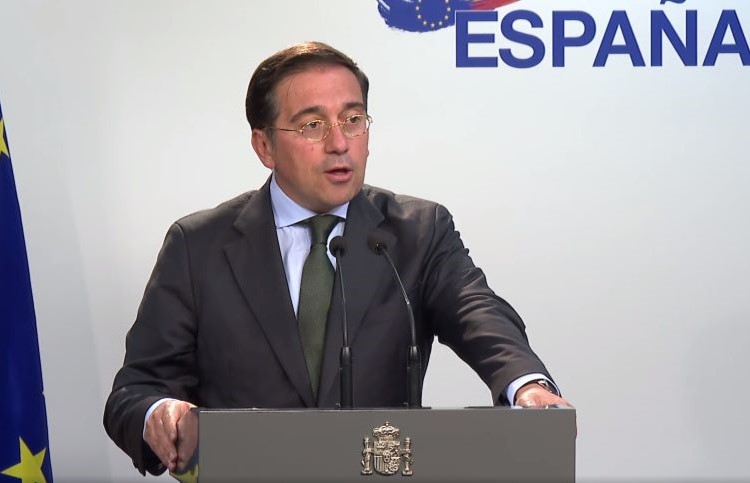Eduardo González
The situation in Ukraine and relations between the EU and Latin America and the Caribbean starred yesterday in Brussels the first Foreign Affairs Council (FAC) of the Czech Presidency, in which Member States reached a political agreement to devote another 500 million euros to the purchase of arms for Kiev and adopted, with the impetus of Spain, a roadmap to reformulate relations with Latin America.
Spain has “repeatedly drawn attention to the need for the EU to pay due attention” to Ibero-America, “the region that is by far the most Euro-compatible on the planet,” Albares declared at the press conference following the Council. Likewise, he continued, the EU Foreign Ministers have “noted” that this relationship “is also fundamental for achieving our strategic autonomy and, therefore, must be one of the priority axes of European external action”.
For this reason, he announced, “we have adopted what we can call a road map to reformulate the EU-Latin America bi-regional relationship”, which will be based on convergence “in our values, in our principles and in all that we have in common, including our languages”, and which must take into account “the geostrategic importance of the Union and the geostrategic importance of Latin America at a very convulsive time in which other actors, with agendas very different from the European one, are making their appearance in Latin America”. “Evidently, Spain’s voice has been raised strongly to make it clear that we support this vision that we have been requesting and that, during our Presidency, in the second half of next year, Latin America will play an important role,” he said.
Likewise, he indicated, “a point that has also had a broad majority is the proposal of the Argentine Presidency of CELAC to hold an EU-CELAC ministerial meeting next October”, which represents “a first step to many other meetings between the EU and Latin America and the Caribbean”. “Not only have I supported it, but I have already announced that I personally will be at that ministerial meeting,” he assured.
Ukraine
In any case, Russian aggression against Ukraine was the main item on the agenda of yesterday’s FAC, in which Ukrainian Foreign Minister Dmytro Kuleba participated by videoconference. “He described the situation to us and asked us, as always, with a lot of courage, strength and high morale, to continue to support Ukraine,” Albares explained.
“In the subsequent discussion (…), we talked about possible military aid and there was a fairly significant majority, joined by Spain, to continue providing tranches of the European Peace Fund,” he explained, without further details. Specifically, the foreign ministers reached a political agreement to commit another 500 million euros, from the European Peace Facility, to finance the purchase of arms for Ukraine, bringing the amount committed by the EU in the five months that the war has already lasted to 2.5 billion euros. However, no formal decision was reached on this issue because it requires the parliamentary support of some member states, so for the time being, it was only noted that the will and consensus necessary for this exists. “It was not the format” to make a decision, but “we have talked about it” and there is “a political agreement”, Albares said. “In any case, I have been in favor of it,” he assured.
During the FAC they also talked about the reconstruction of Ukraine and about “the new package of the Financial Aid Commission of one billion euros”, and addressed “the fight against impunity, the need for war crimes being committed in Ukraine not to go unpunished and, therefore, support for the International Criminal Court”, the Foreign Minister informed.
“Finally, there was also discussion, “although no decision has been taken,” on sanctions on Russia. “There has been a debate on the matter in which it has been very clear that sanctions are effective, that they need time and that we must continue to reflect on how to perfect them,” Albares explained. Likewise, the minister assured that in yesterday’s meeting in Brussels it was confirmed “once again” that “there are no fissures” among the Member States and that “all” are “in agreement that the sanctions are a correct decision, and what is more, they have to continue and we have to continue perfecting them”. Albares made these words in relation to recent statements by the Prime Minister of Hungary, Víktor Orban, in which he said that “sanctions do not help Ukraine and, instead, are bad for the European economy and, if they continue in this way, they will kill it”.







